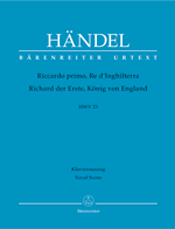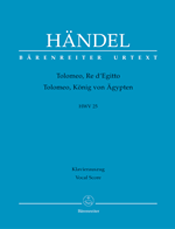Recently in Books
It is a measure of the classic status that the music of Miles Davis has acquired in American culture that a single LP produced for Columbia in the 1960s (Miles Smiles) is the focus of a short monograph from Indiana University Press.
In 1786, Habsburg Emperor Joseph II commissioned a pair of short operas from two of the biggest names in Viennese musical theater: Salieri and Mozart.
This book is in German, which may make it of limited interest to people who are not sufficiently familiar with the language.
Birgit Nilsson probably never heard of “the Protestant work ethic,” but she didn’t need to know it.
Once upon a time, there was something known as early music. This was not so much a repertoire, a musico-historical epoch, as an attitude, a counter-cultural group.
Over the past decade, there have been a plethora of works trying to identify the historical models for characters in Puccini’s famous opera Madama Butterfly.
The interpretive reception of medieval music begins, as John Haines lays forth in the present investigation, already during the latter period of the Middle Ages.
True to the title of this collection, the present volume of correspondence edited by Henry-Louis de La Grange and Günther Weiss — here translated, revised , and supplemented by Antony Beaumont — offers, to date, the most complete body of letters of Gustav Mahler to his wife Alma.
The New Grove Dictionary of Music and Musicians (the “New Grove”) stands as the definitive encyclopedia on music in the English language.1
Introduction: Philip Gossett is one of those rarities in academia: a scholar of the first order and a consummate teacher.
This is a very attractive book, which, in addition to the expected text, has many striking photos, a list of the operas performed in Chicago, indicating all the seasons in which each work was given, and a season by season chronology, limited to professional companies.
This is a highly impressive coffee-table table book, loaded with stunning photographs of productions, singers, composers, and even our nation’s glorious capital.
The world of J.S. Haydn is one gravely underappreciated and undervalued. He never earned the right to a 1980’s bio pic like Mozart or was appreciated and saluted in pop culture through early rock n’ roll like
Beethoven.
Some twenty years ago, a leading German musicologist remarked that the
music of Parsifal
It must not have been an easy life, being Wolfgang Amadeus Mozart (1756-1791). Perhaps even more so after the fact when scholars began to do their research and “wanna bes” began their intimations and psychoanalyzing. In the more seventy-five years of Mozart scholarship and its coming of age, one must ask: How much more is there to learn, to research?
This new volume from Yale University Press is one of those rare and treasured phenomena in Russian music scholarship that illuminate their subject from a new angle — that of cultural history. Indeed, Boris Gasparov's expressed goal in Five Operas and a Symphony is nothing less than turning the table on poetry, philosophy, and literary criticism that have for so long ruled the field of Slavic research, and elucidating them from a musical point of view.
At a time when the press has made the public aware of the difficult circumstances that exist for the symphony orchestra in the United States, it is refreshing to find a book that demonstrates unequivocally the nature of that institution and, as a consequence, its power in culture.
Shakespeare’s Macbeth is a weighty play, and Verdi’s Macbeth seems to be a weighty opera: the three volumes of this edition (two of the full score, plus a smaller Critical Commentary containing the critical notes and a description of the sources) weigh 16.6 pounds. It is remarkable to think that this is the first full score of either the 1847 original or the 1865 revised Macbeth ever published.
As far back as the Middle Ages, students (often only identified as Anonymous) have recorded the methods of performance imparted by their masters. In later centuries, such illustrious teachers wrote and published their own methods.
This book examines two of the more interesting musical pieces of the Romantic movement: Romeo et Juliette (1839) and La damnation de Faust (1846). Both were composed by Hector Berlioz (1803-69), and were very much constructed in a Gesamtkunstwerk mode where literature, music, and the other arts are fused together in a hybrid style that defies genre and categorization.
Books

16 Mar 2008
Handel's Riccardo primo, Re d’Inghilterra (HWV 23) and Tolomeo, Re d’Egitto (HWV 25) from Bärenreiter
Published in 2007, Riccardo primo, Re d’Inghilterra (HWV 23) and Tolomeo, Re d’Egitto (HWV 25) mark two of the latest installments of vocal-score editions of Handel’s operas based upon Bärenreiter’s Urtext editions.
The primary benefit of these vocal
scores seems clear enough: making available affordable, convenient, modern
critical editions of Handel’s operas.1 Hitherto, individuals have been
largely limited to reproductions of Chrysander’s admirable but often
unreliable ninetieth-century German scores (G. F. Händels Werke: Ausgabe
der deutschen Händelgesellschaft, 1858–94), which are availably for
purchase only sporadically (in the form, for example, of the Dover Score of
Giulio Cesare and Kalmus’s miniature reprint series).
Bärenreiter’s full-score editions, of course, have been beyond the means
of most individuals – Riccardo Primo and Tolomeo are
priced at €335.00 and €259.00 respectively – and are obviously intended
primarily for institutional purchase. At prices in the €25–€40 range,
however, the vocal editions are affordable to a wide range of scholars,
students, and performers.
As has generally been the case, the vocal scores of Riccardo
Primo and Tolomeo have followed the release of the full-score
editions of the same operas in the Hallische Händel-Ausgabe
(HHA) complete-works series.2 Needless to say, the vocal editions
cannot offer many of the advantages of the HHA full scores, which
have been nearly unanimously hailed for the wealth of explanatory information
they provide. The orchestrational indications, for example, offer only
sketches of Handel’s instrumentation, and are not always entirely clear.
Similarly, although a list of general procedural guidelines is supplied in
the front matter, explanations of specific editorial decisions are, of
necessity, extremely limited. The front matter, however, provides (in both
German and English) historical background, plot synopses, and, in the case of
Riccardo Primo, descriptions of the divergent versions of the opera,
giving students and scholars important contextual information. (These
passages are in some cases reproduced verbatim from the HHA
editions, and in others presented in condensed form.)
 On balance, Ricardo Primo, Tolomeo, and the rest of
the series serve their purpose quite well. For researchers, the editions will
likely save many a trip to the university library (especially if the vocal
scores are supplemented with background and source information from Winton
Dean’s two-volume monograph on Handel’s operas). Moreover, vocal
instructors, students, and professional singers alike are sure to find the
editions invaluable, in that they provide relatively easy access to
dependable editions of Handel’s operatic works with each new
publication.
On balance, Ricardo Primo, Tolomeo, and the rest of
the series serve their purpose quite well. For researchers, the editions will
likely save many a trip to the university library (especially if the vocal
scores are supplemented with background and source information from Winton
Dean’s two-volume monograph on Handel’s operas). Moreover, vocal
instructors, students, and professional singers alike are sure to find the
editions invaluable, in that they provide relatively easy access to
dependable editions of Handel’s operatic works with each new
publication.
Nathan Link
1. The vocal score of Amadigi di Gaula was published in late February 2008; Oreste is set to be published in May 2008.
2. There are three exceptions: the vocal scores for Ezio (scheduled for publication Summer 2008), Alcina (due for publication in 2009), and Giulio Cesare (publication date not yet clear) have preceded the publication of the respective HHA full score.

